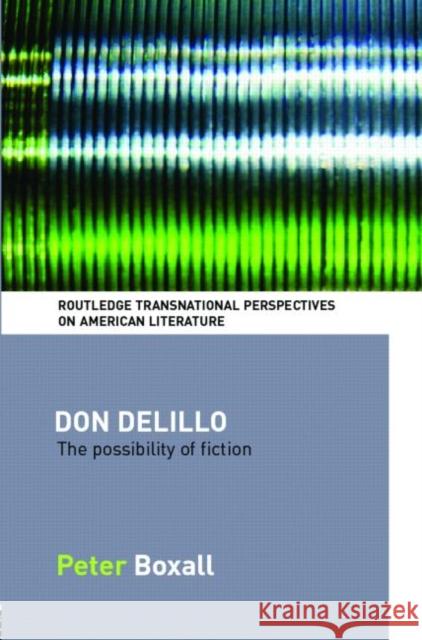Don DeLillo : The Possibility of Fiction » książka
Don DeLillo : The Possibility of Fiction
ISBN-13: 9780415309813 / Angielski / Twarda / 2006 / 252 str.
Don DeLillo : The Possibility of Fiction
ISBN-13: 9780415309813 / Angielski / Twarda / 2006 / 252 str.
(netto: 741,76 VAT: 5%)
Najniższa cena z 30 dni: 705,23
ok. 16-18 dni roboczych.
Darmowa dostawa!
DeLillo's writing has been concerned, from its inception, with thinking about how fiction has developed from the end of the Second World War. This book reads the whole of Don DeLillo's oeuvre to date - from Americana to Cosmopolis - and asks how far his writing can be thought of as an enactment of the possibilities of literary fiction in contemporary global culture.
DeLillo's work offers an analysis of the ways in which the globalization of capital, the end of the modernist avant-garde, and the expansion of the US military and economic power have transformed the production of fiction. The writer as a social critic, as a figure who helps us to 'think and see', is under threat, in DeLillo's writing from new forms of mass communication, and ever more advanced modes of surveillance and control. But if his writing charts the disappearance of critical fiction, then it also develops new forms in which fiction might persist under new global conditions.
This is the first book to offer a reading of DeLillo's complete oeuvre in the light of 9/11, and of the new global power relations that have come about in the wake of the attacks. DeLillo's writing offers one of the most subtle and powerful ways of thinking about globalization and global terrorism. Don DeLillo suggest ways in which his writing might help us to think about the possibilities of fiction in the post 9/11 global context.











